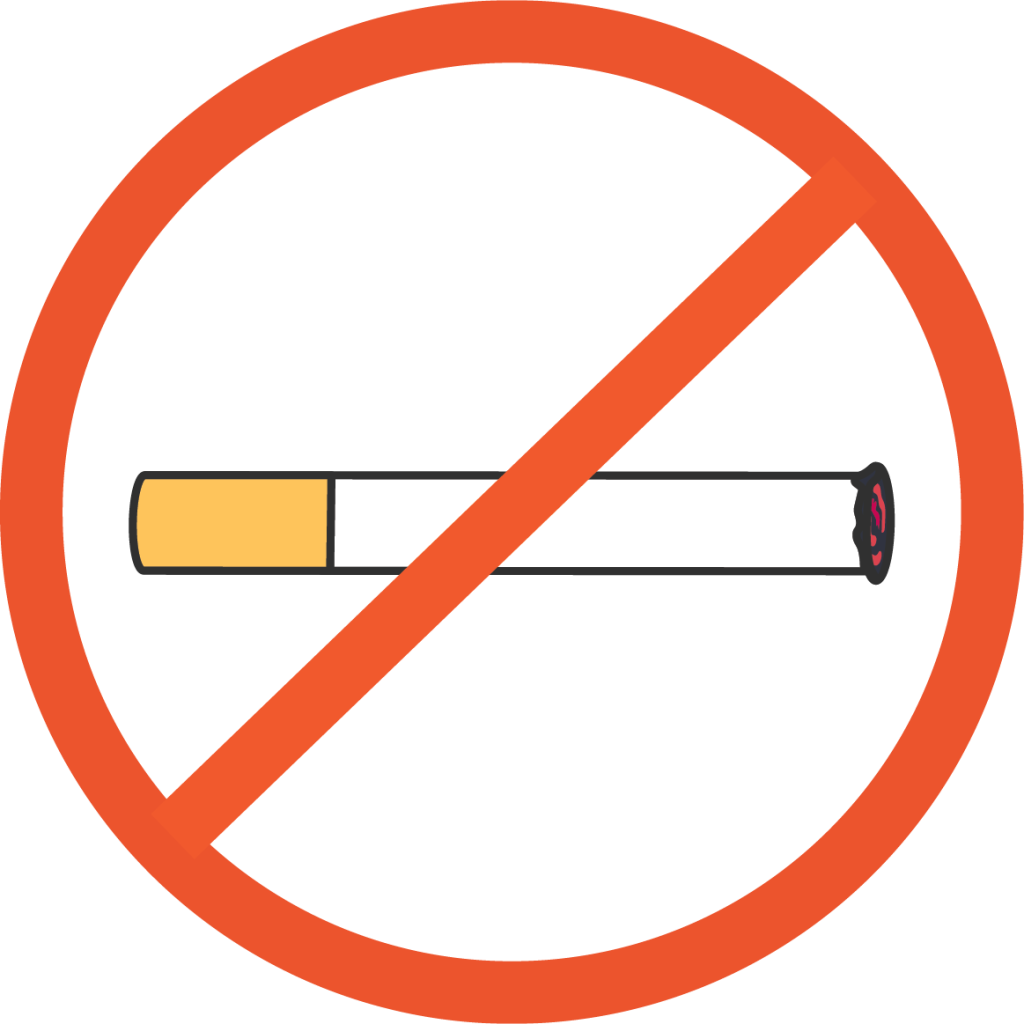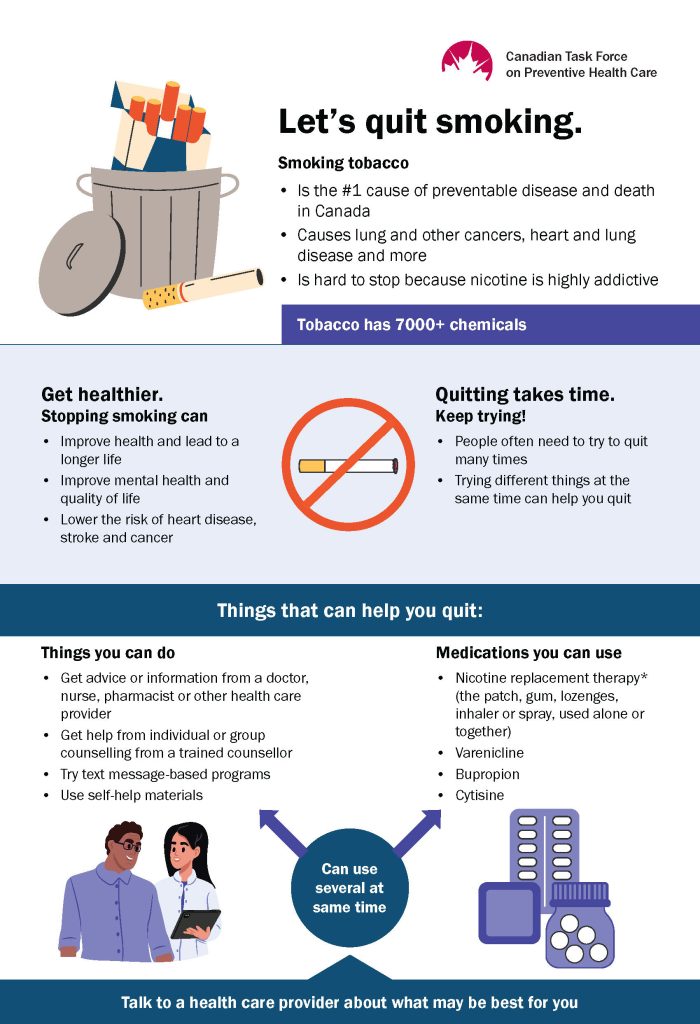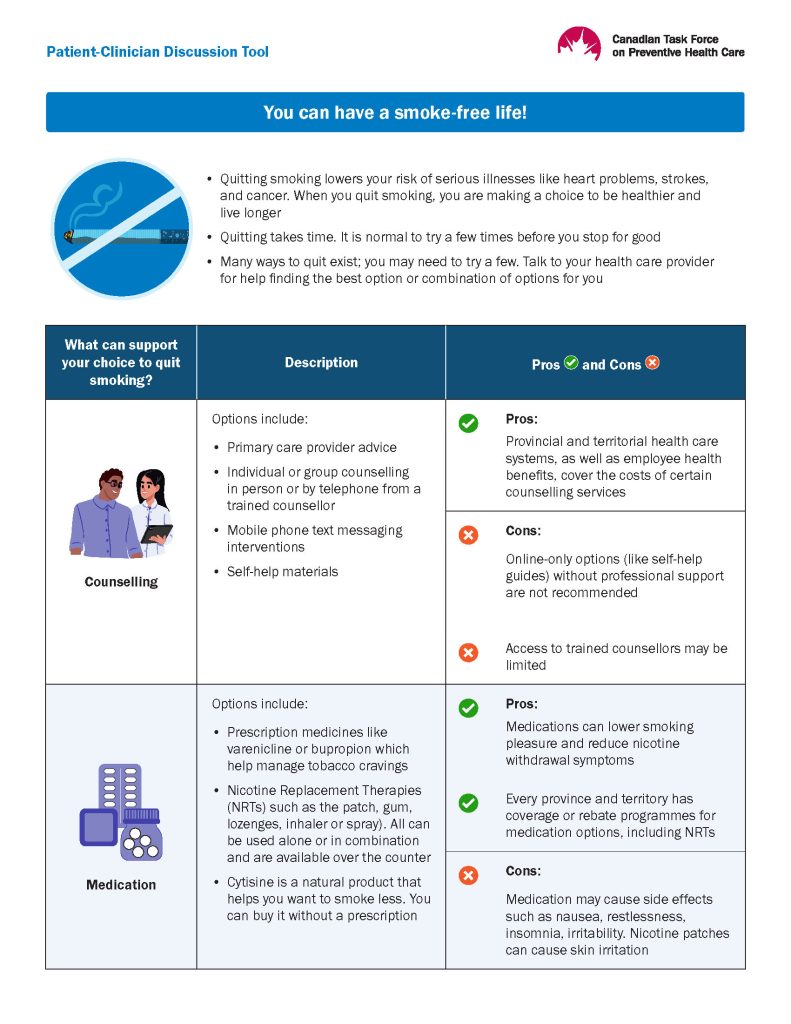Public – Tobacco smoking in adults
Help to quit smoking
Thinking of quitting smoking?
The Canadian Task Force on Preventive Health Care has released new evidence-based guidance on the best ways for people to stop smoking*. Find a menu of recommended options (patient-clinician discussion tool) and an infographic to help you quit.
Get healthier.
Stopping smoking can
- Improve health and lead to a longer life
- Improve mental health and quality of life
- Lower the risk of heart disease, stroke and cancer

Things you can you do
- Get advice or information from a doctor, nurse, pharmacist or other health care provider
- Get help from individual or group counselling led by a trained counsellor
- Try text message-based programs
- Use self-help materials

Medications you can use
- Nicotine replacement therapy (NRT)
- the patch, gum, lozenges, inhaler or spray, used alone or together
- Varenicline
- Bupropion
- Cytisine

You can also try more than one thing at the same time.
Quitting takes time. Keep trying!
- People often need to try to quit many times
- Trying different options at the same time can help you quit

Facts about tobacco smoking
- It’s the #1 cause of preventable disease and death in Canada
- Causes lung and other cancers, heart and lung disease and more
- Is hard to stop because nicotine is highly addictive
- Tobacco has 7000+ chemicals
What about e-cigarettes?
- People who smoke are encouraged to talk to a health care provider about which options may be best for them
- E-cigarettes may help stop smoking for people who could not quit other ways or who have a strong preference for e-cigarettes
- People should try other proven treatments FIRST
- It is important to know that no e-cigarette is approved for tobacco cessation in Canada, and that there is limited information on long-term safety, such as on lung or heart health
- Using e-cigarettes does not address nicotine addiction
Want more information?
- Tobacco Free Quebec (Quebec sans tabac)
- Canada.ca – Quit with confidence
- Canadian Cancer Society
- Quitting smoking: Provincial and territorial services
* Recommendations do not apply to traditional or ceremonial tobacco use by Indigenous groups or to pregnant or breast/chest-feeding people.


